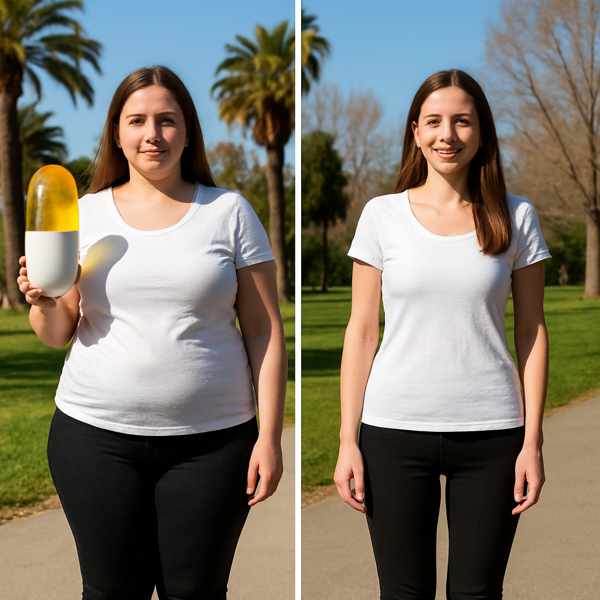
Many people ask: does vitamin D help with weight loss?
Let’s explore the science, potential benefits, and how vitamin D may — or may not — affect your weight loss journey.
Vitamin D Basics
Known as the “sunshine vitamin,” it plays a key role in many bodily functions.
It helps with:
- Calcium absorption
- Helps defend against infections
- Linked to serotonin and depression
- Muscle function and energy
What the Research Says
Obese individuals are more likely to be vitamin D deficient.
Some research suggests:
- It could help regulate how the body stores fat
- Chronic inflammation is tied to weight gain
- Improved mood and energy may boost activity levels
- Supports insulin sensitivity
Scientific Evidence and Limitations
- A study in 2014 found that overweight women who took vitamin D lost more fat than those who didn’t supplement.
- Another review showed vitamin D helped improve metabolic markers related to weight control.
- Some trials show no major impact on weight loss unless deficiency was corrected first.
While promising, the evidence is not yet strong enough to say vitamin D alone causes weight loss.
When Vitamin D Can Help with Fat Loss
People most likely to benefit from vitamin D supplementation include:
- Get your blood levels tested first
- Vitamin D may support improved hormone function
- Improved mood can lead to better lifestyle habits
- Indoor lifestyles can contribute to deficiency
How to Add Vitamin D to Your Routine
Ways to get more vitamin D:
- Sun exposure
- Foods like salmon, egg yolks, fortified milk
- Vitamin D3 supplements
Tips:
- Don’t overdo it
- Check with a doctor before starting
- These nutrients work together for full benefits
What You Should Know
It may support fat loss indirectly, but it works best when combined with healthy habits.
For best results:
- Focus on whole foods and nutrients
- Exercise improves fat metabolism and energy levels
- does vitamin d supplements cause weight gain Sleep affects hormones that regulate appetite
- Reduce stress
Final Thoughts
If you’re deficient, correcting your levels could lead to better energy, mood, and metabolic function.
Combine smart nutrition, movement, and lifestyle habits to reach your goals — with vitamin D as a helpful ally.